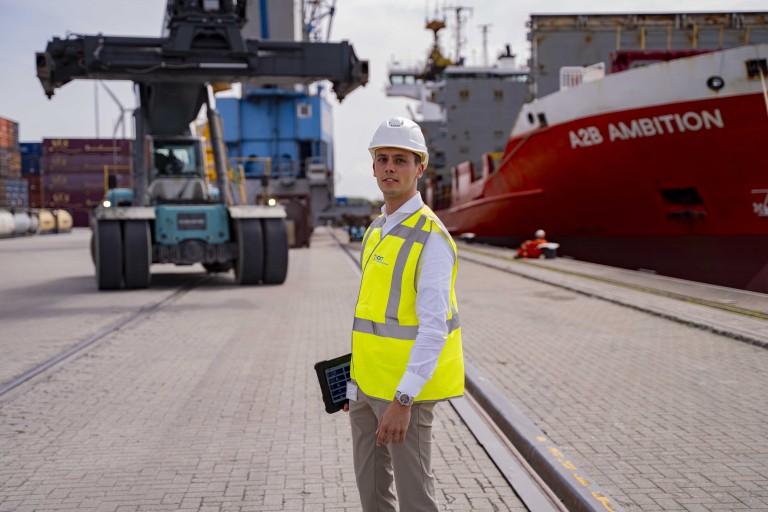Your career options with a master in Supply Chain Management
Skilled professionals are in high demand in the global supply chain field. With strategic, analytical, and practical skills from your master’s, you can quickly land jobs and excel in this dynamic field. The programme’s structured approach and focus on problem-solving skills are key to your daily work and decision-making.
Explore possible roles in Supply Chain Management
Supply Chain Management alumni

"This Master's programme has been essential in my success"
Master Supply Chain Management graduate Dóra Varga works as a Integrated Supply Chain Trainee at Royal Philips. She tells about her current job and what's typical BUas in her daily tasks.

A Dynamic Role in Supply Chain Management
Master Supply Chain Management graduate Tim Husson works at Solvint. By combining strategic thinking with data analysis, Tim helps optimise supply chains and deliver measurable results.
Choose Supply Chain Management at BUas
A master's in Supply Chain Management from BUas launches you into a crucial industry with endless job opportunities. Whether you want to innovate processes, lead global operations, or champion sustainability, you’ll be ready to make a difference!
Frequently asked questions about Supply Chain Management
If your question is not listed below, feel free to ask in the chat. Our students will be happy to help!
- What do you do in the master Supply Chain Management?
The Master Supply Chain Management is a one-year, full-time professional programme designed to equip students with strategic, analytical, and leadership skills essential for managing and innovating supply chains in a global context.
- Within which sectors can you work with a master's degree in Supply Chain Management
A career in Supply Chain Management opens doors to a wide range of sectors - from retail and e-commerce, to healthcare, manufacturing, food and beverage, and even renewable energy. Nearly every industry relies on efficient supply chains to deliver products and services, which means that skilled professionals are needed, especially with a growing focus on sustainability and digital transformation. Whether you're you are coordinating global shipments for a logistics provider, managing production flows in a factory, or optimising the delivery of medical supplies in hospitals, your expertise will make a real impact.
